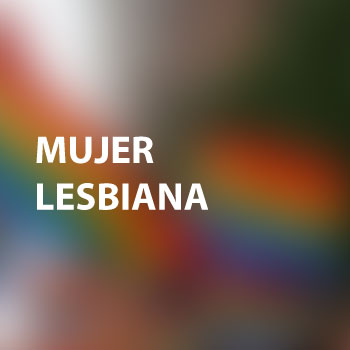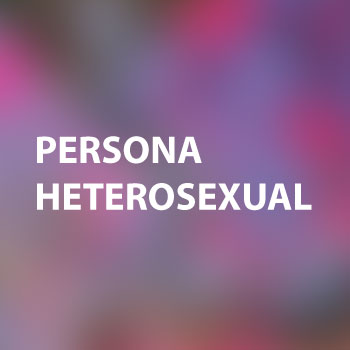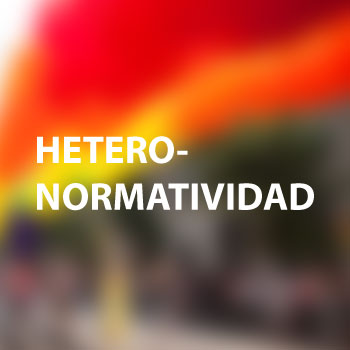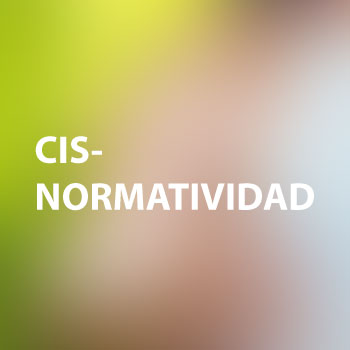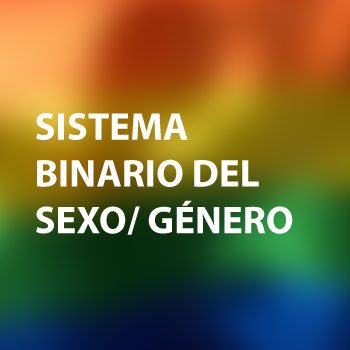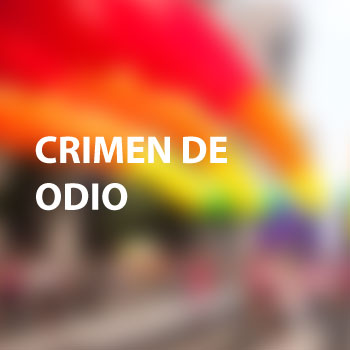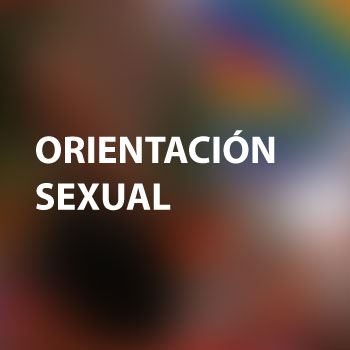
Conceptos Básicos
Si bien la CIDH ha adoptado un acrónimo fácilmente reconocible para nombrar su Relatoría, es importante señalar que la Relatoría sobre los Derechos de las Personas LGBTI se ocupa de cuestiones de derechos humanos relacionadas a la orientación sexual, la identidad y la expresión de género, y la diversidad corporal.
La Comisión también reconoce la auto-identificación de cada persona como principio rector.
Los conceptos básicos en esta página deben servir sólo como guía.
Referencias
[1] International Commission of Jurists, Sexual Orientation, Gender Identity and International Human Rights Law, Practitioners Guide No. 4, Geneva, Switzerland, 2009, p. 21.
[2] La CIDH tomó nota de las explicaciones académicas de las trabajadoras Mati en Suriname, cuyas raíces pueden remontarse al África Occidental. Wekker, Gloria. The Politics of Passion: Women’s sexual Culture in the Afro-Surinamese Diaspora, New York, United States: Columbia University Press, 2006, p. 173. The phrase “mati work” has a particular meaning in the Suriname context; it “refers to women's sexual, spiritual, and emotional bonds with other women, as well as to the mutual responsibility and obligation that characterize their intimate relationships with each other.” Brown N., Jacqueline. Suriname, Sweet Suriname, GLQ: A Journal of Lesbian and Gay Studies Volume 13, Number 2-3, 200, p. 406, making reference to Wekker, Gloria. The Politics of Passion: Women’s sexual Culture in the Afro-Surinamese Diaspora, New York, United States: Columbia University Press, 2006.
[3] [Estigma] ONU, Consejo de Derechos Humanos, Informe de la Relatora Especial sobre el derecho humano al agua potable y el saneamiento, El estigma y el ejercicio de los derechos humanos al agua y el saneamiento, A/HRC/21/42, 2 de julio de 2012, párr. 12.
[4] National Association of Friendship Centres, Supporting two-spirited peoples: Discussion paper, Otawa, United States, 2008.
[5] Las personas Muxe son vistas como un tercer género. Como le indicó una persona Muxe a la CIDH, “queremos ser nombradas y nombrados desde otro lugar, desde nuestro lugar de origen. En mi caso como Muxe, en las siglas LGBTI no tengo cabida en términos de representación.” Testimonio de Amaranta Gómez Regalado durante la audiencia pública en el 147° período ordinario de sesiones de la CIDH, 16 de marzo de 2013. Audiencia solicitada por Fundación Diversencia.
[6] Cabral, Mauricio. Interview with Benzur, Gabriel. Cuando Digo Intersex. Un diálogo introductorio a la intersexualidad, 2005. Interview available in: http://www.scielo.br/scielo.php?pid=S0104-83332005000100013&script=sci_arttext
[7] María Mercedes Gómez, interview, Centro latinoamericano de Sexualidades y Derechos Humanos. 2007.
[8] Gómez, María M. Capítulo 2: Violencia por prejuicio [Chapter 2: Prejudice-based Violence], in Motta, Cristina and Sáez, Macarena (eds.), La Mirada de los Jueces: Sexualidades diversas en la jurisprudencia latinoamericana. Tomo 2. [Justice´s Gaze: A Casebook on Diverse Sexualities and Jurisprudence in Latin America. Vol. 2] Bogotá, Colombia: Siglo del Hombre Editores, Red Alas, 2008, p. 99. [Free translation by the IACHR].
[9] UNESCO, Review of Homophobic Bullying in Educational Institutions, 2012, p. 50.
[10] Global Rights: Partners for Justice, Demanding Credibility and Sustaining Activism: A Guide to Sexuality-Based Advocacy, Washington, United States, 2010, p. 95.
[11] From Latin: “trans” (across, on the other side of); “cis” (on this side of).
[12] [Cisnormatividad] Basado en presunciones arraigadas de que todas las personas son femeninas o masculinas y que este elemento define el sexo, el género, la identidad de género y la orientación sexual de cada persona. Bauer, Greta R., Rebecca Hammond, Robb Travers, Matthias Kaay, Karin Hohenadel, and Michelle Boyce. 2009. ‘I don’t think this is theoretical; this is our lives': How erasure impacts health care for transgender people. Journal of the Association of Nurses in AIDS Care, 20(5): 348–61, cited in https://cisnormativity.wordpress.com/2011/08/23/harmful-ubiquity-introducing-cisnormativity/#more-26. Global Rights: Partners for Justice, Demanding Credibility and Sustaining Activism: A Guide to Sexuality-Based Advocacy, Washington, United States, 2010, p. 95.
[13] Bauer, Greta R., Rebecca Hammond, Robb Travers, Matthias Kaay, Karin Hohenadel, and Michelle Boyce. 2009. ‘I don’t think this is theoretical; this is our lives': How erasure impacts health care for transgender people. Journal of the Association of Nurses in AIDS Care, 20(5): 348–61, cited in https://cisnormativity.wordpress.com/2011/08/23/harmful-ubiquity-introducing-cisnormativity/#more-26.
[14] [Estereotipo] Rebecca Cook y Simone Cusack, Gender Stereotyping: Transnational Legal Perspectives. Pennsylvania Studies in Human Rights, University of Pennsylvania Press, 2010, pág. 9.
[15] Global Rights: Partners for Justice, Demanding Credibility and Sustaining Activism: A Guide to Sexuality-Based Advocacy, Washington, United States, 2010, p. 95. See also Butler, Judith. Gender Trouble: Feminism and the subversion of identity, Routledge, 2006.
[16] Cabral, Mauro. Pensar la intersexualidad, hoy, in Maffía, Diana (Ed.), Sexualidades Migrantes: género y transgénero, Argentina: Feminaria, 2003, p. 121.
[17] Cabral, Mauro and Maffia, Diana. Los sexos ¿son o se hacen?, Buenos Aires, Argentina, 2013.
[18] Fausto-Sterling, Anne. Sexing the body, New York, United States: Brown University, 2000, p. 3.
[19] Sylvia Rivera Law Project, Fact Sheet: Transgender and Gender Nonconforming Youth in School.
[20] [Queer] Ver, Heartland Trans Wellness Group, Trans and Queer/LGBTQPIA Terminology. También ha sido utilizado para denominar una corriente teórica y política que denuncia exclusiones, fallos en las políticas de representación, una crítica a todos los procesos políticos que naturalizan las identidades como verdades objetivas, y una reflexión sobre el esencialismo y construccionismo, que considera errores del feminismo liberal. Ver, por ejemplo, Carrillo, Jesús y Preciado, Beatriz. Entrevista com Beatriz Preciado, Octubre de 2004.
[21][Crimen de Odio][Estados Unidos] The Hate Crime Statistics Act, 28 U.S.C. § 534. [Uruguay] Ley No. 17.677 – “Incitación al odio, desprecio o violencia o comisión de estos actos contra determinadas personas,” que sustituyó el artículo 149 ter del Código Penal, 29 de julio de 2003.
[22] [Sexo asignado al nacer] El “sexo anatómico y su presumida dicotomía, son el resultado de una lectura ideológica.” Por otra parte, asignar el sexo “es una decisión social. Podemos utilizar el conocimiento científico para ayudarnos a tomar la decisión, pero solo nuestras creencias sobre el género -no la ciencia- pueden definir nuestro sexo.”
El Informe
Recibe todas las novedades de la CIDH
Suscríbete a nuestra lista de distribución





